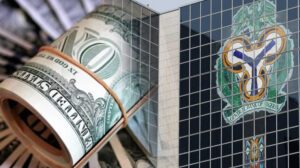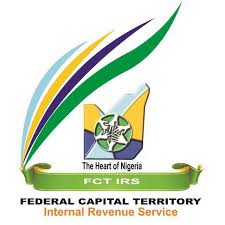
IMF calls on Nigeria to increase tax collection for national budget funding
In a bid to achieve economic growth and stability, the International Monetary Fund (IMF) has emphasised the importance of Nigeria’s fuel subsidy removal policy and foreign exchange unification initiative.
According to the IMF Africa Department Director, Abebe Selassie, the Nigerian government must focus on collecting more taxes to fund the national budget and pay off public debts.
This statement was made during a press briefing on the Sub-Saharan Africa Regional Economic Outlook at the World Bank Group/International Monetary Fund Meeting in Marrakech, Morocco.
Nigeria has been grappling with harsh economic conditions since President Bola Tinubu implemented the removal of fuel subsidies and foreign exchange unification after assuming office in late May.
The deregulation of the downstream oil sector resulted in a significant increase in petrol prices, soaring from approximately N185 per litre to around N600 per litre.
This sudden surge in prices has inflicted immense pain and hardships on the Nigerian population.
The IMF’s stance on Nigeria’s economic situation is rooted in the belief that the removal of fuel subsidies and foreign exchange unification, though initially challenging, can pave the way for long-term economic growth and stability.
However, to ensure the success of these policies, the IMF emphasises the need for the Nigerian government to focus on tax collection.
Tax collection plays a crucial role in funding the national budget and paying off public debts.
While the removal of fuel subsidies and foreign exchange unification has caused short-term hardships, the IMF believes that these measures will ultimately lead to a more efficient and sustainable economy.
Furthermore, the government should focus on improving tax administration and enforcement to increase tax collection.
Aside from this, policies aimed at unifying the official and parallel market rates of the naira announced in early June by the government have worsened the sharp rise in the prices of goods and services following the jump in the pump price of petrol.
Despite the initial savings made from fuel subsidy removal by the Federal Government, over 90 per cent of government revenue still goes into debt servicing, leaving it with a meagre amount to cater to major economic growth and development projects.
However, the IMF said on Friday that Nigerian policymakers must urgently complement the fuel subsidy removal with a set of policies that could ameliorate the economic challenges facing the country.
Selassie said, “The exchange rate reforms that the government did were very, very welcome, trying to unify the rate, similarly the fuel subsidy. But that will not help and will not stick unless you also are tightening monetary policy; unless you’re also doing something to mobilise more tax revenues. So, a holistic package of reforms is what’s needed.
“So, you have a medley of things mainly rooted in the fiscal challenges that Nigeria has faced, not having tax revenues. At the same time, this is a country with incredible potential and we have seen reforms moving in the right direction in recent months. What is needed, we feel, is making the reforms holistic and help reinforce each other. Just as things were not reinforcing each other in the past, I think there is scope to make the reforms reinforce each other.”
The IMF Director noted that Nigeria had over-relied on oil revenue, making it difficult to tap its potential in other areas.
He said, “Why are there not enough tax revenues? I think in the past, over-reliance on oil was when prices were high. Second, of course, also is the subsidy regime, which also entails quite a lot of loss of government resources being directed where they perhaps should not be.
“So, I think these are all interlinked issues, including causing some of the inflation that you are seeing, because, given the difficulty to tap international capital markets, the government has had to rely more on domestic financing, which has either crowded out the private sector or of course caused the monetary injection, which again has weakened the exchange rate.”
Selassie, however, said the leaders at the Central Bank of Nigeria and the Ministry of Finance were new, adding that there was a need to give them more time to act.
He expressed confidence in their ability to make the right economic decisions, saying, “I think we have to give a bit of time to the new administration also, I mean, the central bank governor has just been appointed. The Minister of Finance has only been in office for a few weeks. So, we’re hopeful that they will move in the right direction, and we stand there to provide any policy advice the government needs.”



